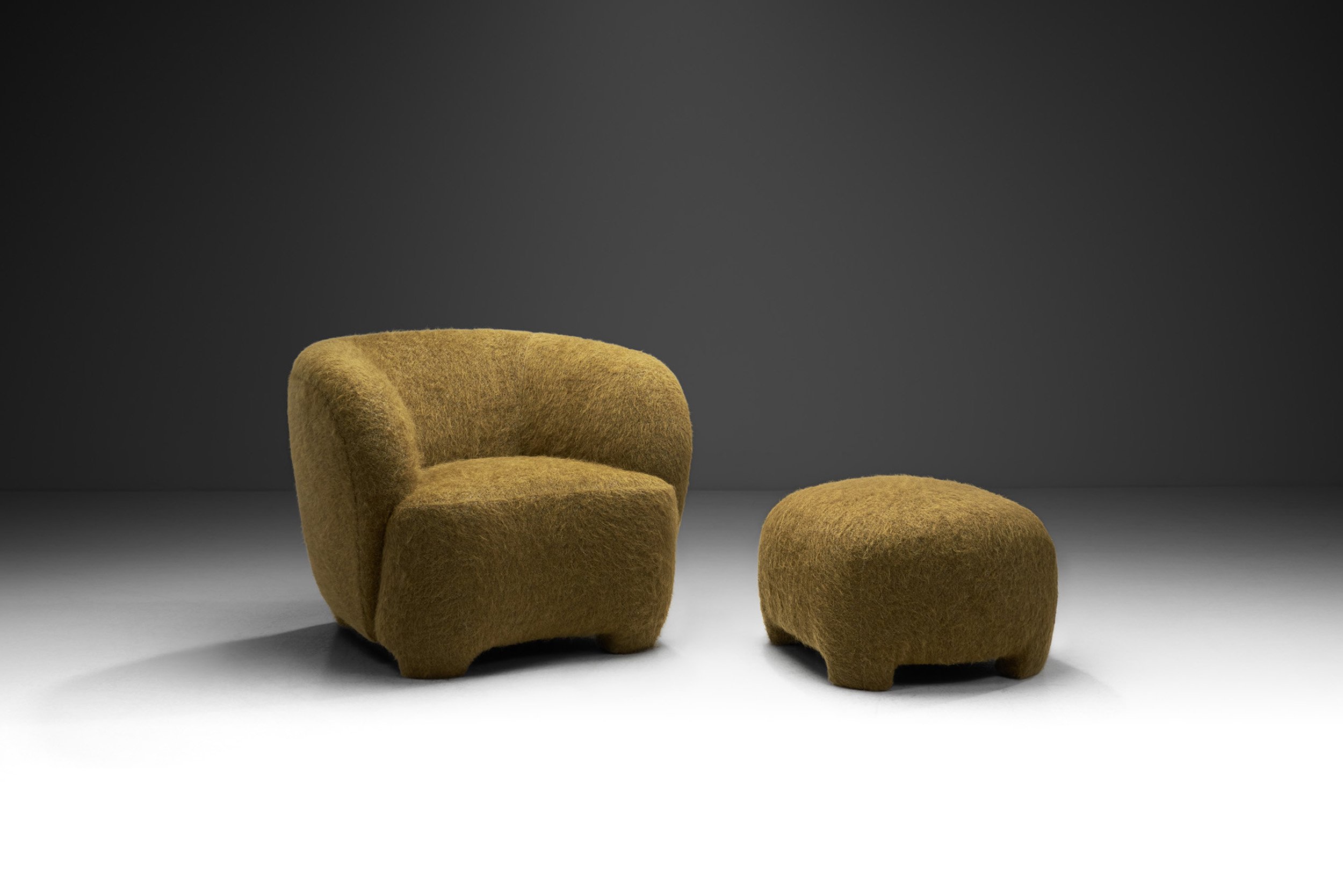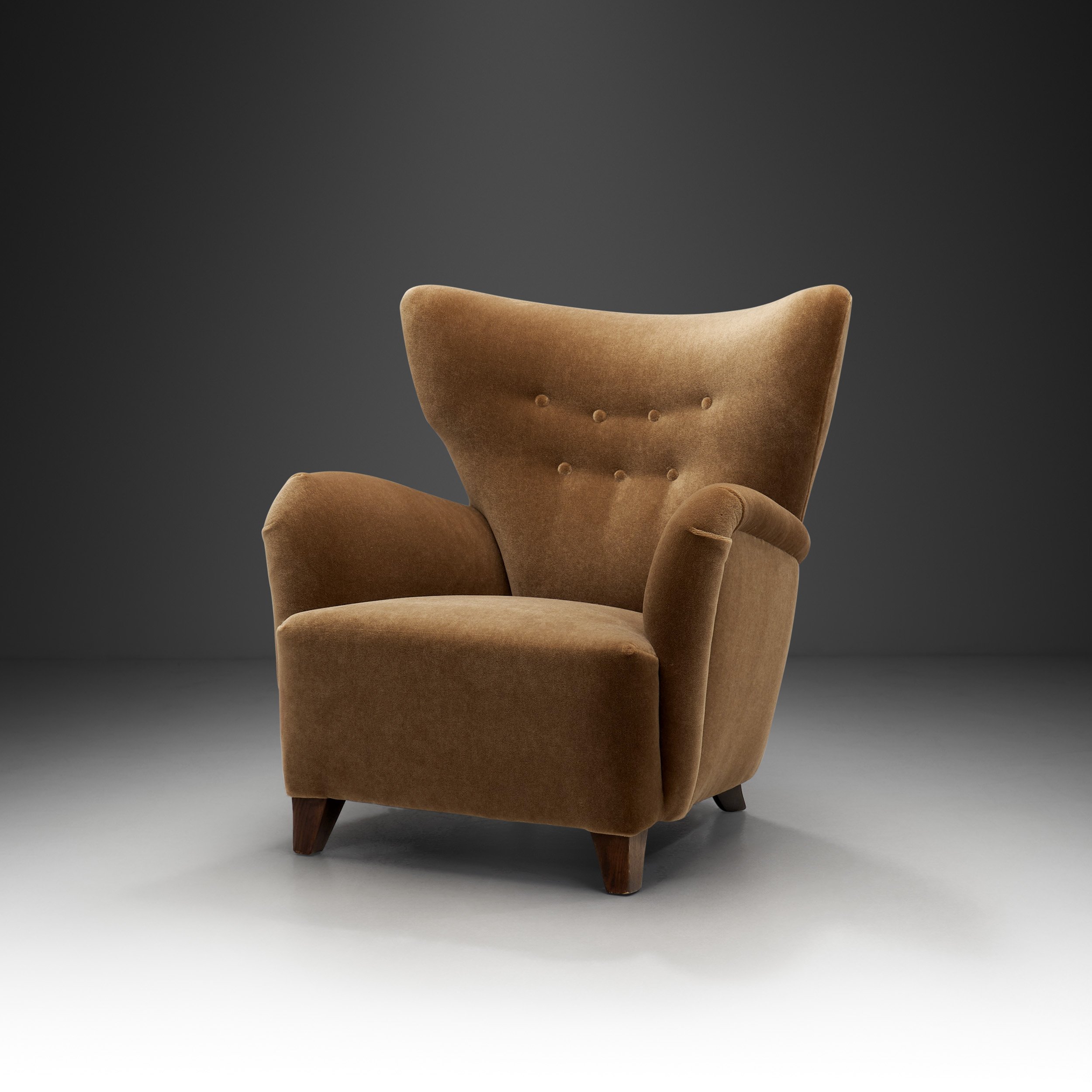Danish Cabinetmaker Carved Oak Armchair, Denmark 1940s (sold)














Danish Cabinetmaker Carved Oak Armchair, Denmark 1940s (sold)
Danish mid-century furniture focused on the aesthetics of modern design whilst employing the exquisite technique and material familiarity of highly skilled craftsmen such as cabinetmakers. This early modern armchair shows off the master cabinetmaker’s skills through its distinctive solid oak frame.
Function combined with inspiration from nature creates a very warm strain of modernism that is very easy to relate to. It is easy to trace this sentiment in the construction of this chair: while it is fairly simple, the versatile shapes and forms carved from the oak give it a lot of personality. In the absence of other decorative elements, the carved frame stands out even more. From the “ears” on the very top to the wide armrests and carved legs, there are plenty of creative additions to the design that utilize the qualities of the oak. With a long tradition of craftsmanship, there has always been a heightened appreciation of wood in Denmark. In fact, handcrafting remained in place for far longer in Scandinavia, in comparison to the rest of Western Europe and America, given the late arrival of industrialization to the region. In addition to this evident emphasis on wood and handcrafting, functionality received equal treatment in the making of this chair. The reclined position and raised seat are in service of comfort, supported by the bent back and wider carved front legs. The design is completed by the lush sheepskin upholstery that embraces the oak beautifully.
Master cabinetmakers were highly aware of body proportions, prioritizing comfort just as much as the visual qualities, focusing on the finer details of what can be created with the material. The works by these exceptional craftsmen – such as this armchair – are of the highest quality, both in terms of materials and craftsmanship.
SOLD
Condition:
In good vintage condition. Wear consistent with age and use. The chair has been reupholstered recently in premium sheepskin. Each of our items can be re-upholstered by our in-house atelier in a fabric of choice. Please reach out for more information.
Dimensions:
29.92 in W x 30.31 in D x 35.43 in H; Seat height 18.89 in; Arm height 23.62 in
76 cm W x 77 cm D x 90 cm H; Seat height 48 cm; Arm height 60 cm
About the Designer:
The practical and comfortable designs of Danish cabinetmakers defined mid-20th century modern seating. The Danish Cabinetmakers focused on minimalist design executed by expertly skilled craftsmen.
Works from the Danish Cabinet-Makers' Guild is a concept of its own in collectible design. The Cabinet-Makers' Guild began annual exhibitions in 1927 in Copenhagen. The group formed an exhibit showing each year in October the quality furniture made to drawings by gifted architects. The exhibition took place each year, without interruption, for forty years. A number of successful Danish Design collaborations were formed during this time between cabinetmakers and architects.
Danish Modernism has influenced Scandinavian furniture to a great degree, defined by minimalism, simplicity, and functionality. The muted colours and gentle designs make Danish mid-century furniture an ideal addition to contemporary living spaces. Additionally, master cabinetmakers were highly aware of body proportions, prioritizing comfort just as much as the visual qualities.
The works of master cabinetmakers – such as this chair – are of the highest quality, both in terms of materials and craftsmanship. Cabinetmakers take the art of working with wood one step further, and focus on the finer details of what can be created with the material. Therefore, it comes as no surprise that numerous master cabinetmakers are part of the renowned Danish Culture Canon (Danish: Kulturkanonen). The canon contains no more than 108 works of cultural excellence, based on works with a useful function and that are still recognizable today. This small armchair is the perfect illustration of Danish design, and the work of a true cabinetmaker. ~H.












